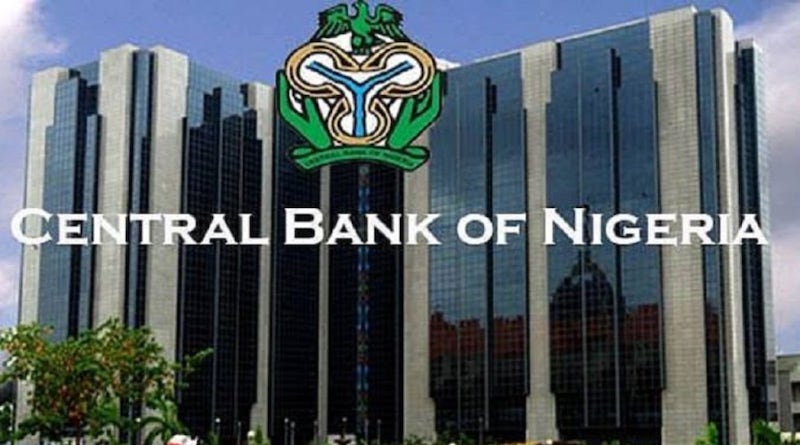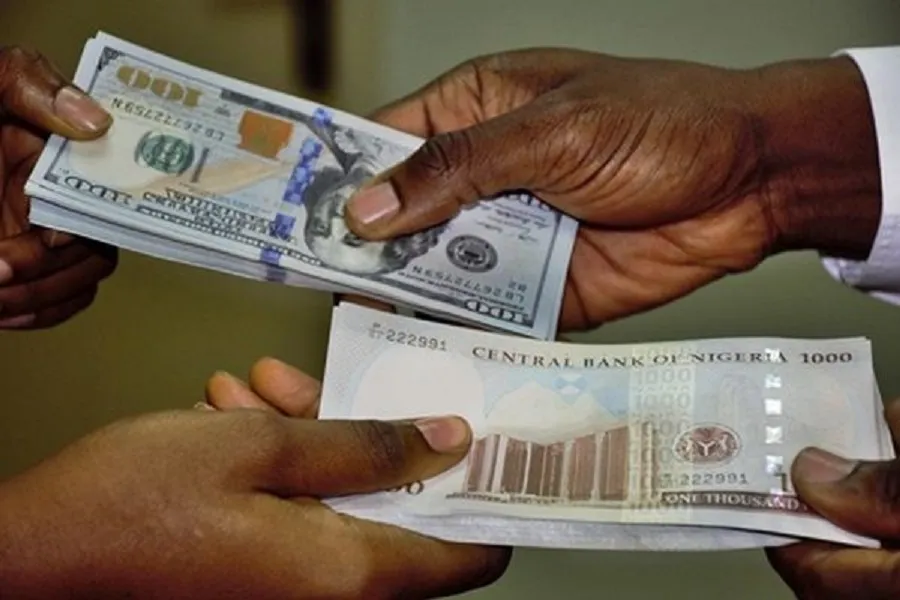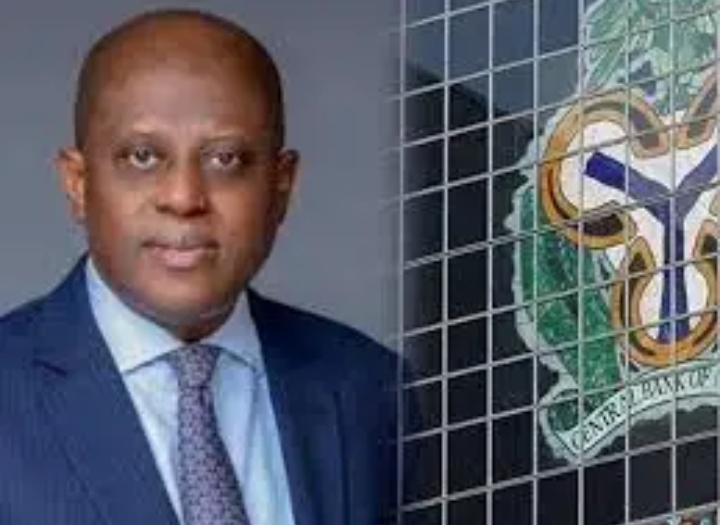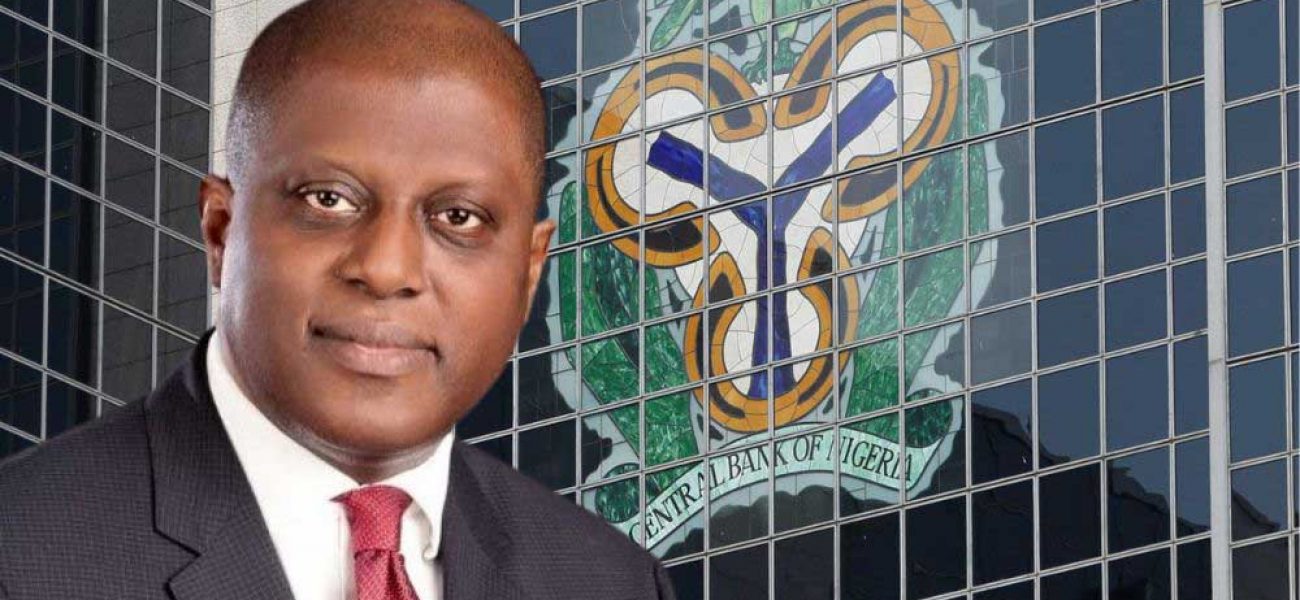The stock market’s performance index closed 0.08 per cent weaker on Tuesday as investors reacted negatively to the Central Bank of Nigeria’s (CBN) hike in the Monetary Policy Rate (MPR).
CBN’s Monetary Policy Committee (MPC) earlier announced another increase in the country’s MPR by 50 basis points to 26.75 per cent, from 26.25 per cent.
Dr Yemi Cardoso, the CBN Governor, made this known while presenting the communiqué from the 296th meeting of the MPC.
Cardoso said the decision was in response to continued inflationary pressures.
He noted that it was important to deal with inflation, as the apex bank was concerned about the impact of inflation on ordinary Nigerians and businesses.
In a prediction, analysts at Cowry Asset Management Ltd. had stated that the outcome of the MPC meeting, along with other economic news, could stir mixed sentiments in the capital market.
The analysts said market players would be closely analysing these developments to understand their potential impact on investments.
Specifically on trading, the Nigerian Exchange Ltd. (NGX) market capitalisation, which opened at N56.945 trillion, shed N47 billion or 0.08 per cent to close at N56.898 trillion.
The All-Share Index also dropped 0.08 per cent or 83 points to settle at 100,486.12, against 100,568.60 recorded on Monday.
As a result, the Year-To-Date (YTD) return declined to 34.39 per cent.
Sell-offs in Tier-one banking stocks, namely: Zenith Bank, Access Corporation, FBN Holdings, United Bank for Africa (UBA), and United Capital, among other declined equities, dragged the market down.
Also, market breadth closed negative with 27 losers and 14 gainers on the floor of the Exchange.
On the losers’ table, UPL led by 9.92 per cent to close at N2.27, and John Holt trailed by 9.87 per cent to close at N2.83 per share.
Omatek lost 9.46 per cent to close at 67k per share, Deap Capital Management and Trust declined by 8.93 per cent to close at 51k and Secure Electronic Technology Plc shed 7.02 per cent to close at 53k per share.
Conversely, Ikeja Hotel led the gainers table by 6.60 per cent to close at N7.10, Linkage Assurance followed by 6.90 per cent to close at 93k per share.
Caverton advanced by five per cent to close at N1.47, Sovereign Trust Insurance gained 4.17 per cent to close at 50k and Consolidated Hallmark Plc added 2.96 per cent to close at N1.39 per share.
Analysis of the market activities indicated that trade turnover settled lower relative to the previous session, with the value of transactions down by 2.46 per cent.
A total of 280.92 million shares valued at N3.63 billion were exchanged in 8,403 deals,compared to 335.70 million shares valued at N3.72 billion exchanged in 8,760 deals posted previously.
Meanwhile, Veritas Kapital led the activity table in volume with 22.51 million shares worth N23.03 million, followed by UCAP with 20.85 million shares worth N817.10 million to lead the table in value.
Jaiz Bank traded 20. 78 million shares valued at N45.11 million, Access Corporation transacted 20.40 million shares worth N394.32 million and Prestige Assurance sold 16.81 million shares worth N8.6 million.
Interest rate hike: CPPE commends CBN
Meanwhile, the Centre for the Promotion of Private Enterprise (CPPE) has commended CBN for a moderate interest rate hike.
It also called for urgent implementation of fiscal policies to stabilise the economy.
Dr Muda Yusuf, Chief Executive Officer of CPPE, made the call in a statement on Tuesday while responding to the outcome of the Monetary Policy Committee (MPC) meeting of the CBN.
The meeting started Monday, July 22, and ended Tuesday, July 23, in Abuja.
The apex bank had increased the Monetary Policy Rate (MPR) to 26.75 per cent from 26.25 per cent to address the surging inflation in the country.
Nigeria’s inflation rate recently climbed to 34.19 per cent, driven by rising food prices.
The committee raised the rate by 50 basis points and adjusted the asymmetric corridor to +500 and -100 basis points around the MPR.
Yusuf said the moderate increase was tolerable and showed that the CBN was listening and responding to the suggestions of financial stakeholders to stop aggressive tightening measures.
He explained that, although he preferred a pause on rate increases because of the challenges businesses were facing.
“The marginal increase marks a softening of the tightening stance. It is tolerable,” Yusuf said.
The CPPE boss, however, called for speedy implementation of fiscal policy measures to tackle inflation.
“Already, the economic stabilisation plan contains some laudable fiscal policy measures that could reduce production costs in the economy.
“It is also important and urgent for the government to adopt and quickly implement the recommendation of the Presidential Committee on Fiscal and Tax Reforms on the Customs duty exchange rate, which proposed N800 per dollar.
“The adoption of this recommendation would have a considerable impact on the cost of goods and services in the country,” he said.
CBN’s interest rate hike expected – Economist
Prof. Uche Uwaleke, President of the Capital Market Academics of Nigeria says the Central Bank of Nigeria’s (CBN) decision to hike interest rates was anticipated.
Uwaleke, in an interview on Tuesday in Abuja, reacted to the Monetary Policy Committee (MPC) decision to increase the Monetary Policy Rate (MPR) by 50 basis points from 26.25 per cent to 26.75 per cent.
This decision was announced by CBN Governor, Dr Yemi Cardoso.
The committee also adjusted the asymmetric corridor around the MPR to +500/-100 from +100/-300 basis points, retained the Cash Reserve Ratio (CRR) for Deposit Money Banks at 45 per cent and Merchant Banks at 14 per cent, and maintained the Liquidity Ratio at 30 per cent.
This marks the fourth consecutive hike in the MPR in the year, raising the rate from 18.25 per cent to 26.75 per cent.
Uwaleke said, “Having done 750 basis points between February and May, I had predicted they would do a minimum of 50 basis points or a maximum of 100 basis points in July.
“It is good that they chose the floor, which is a sign that a complete halt is most likely in their next scheduled meeting in September.”
Uwaleke, also Director of the Institute of Capital Market at Nasarawa State University, Keffi, however, expressed concern over the adjustment of the asymmetric corridor.
“The adjustment to the asymmetric corridor around the MPR is a major source of concern.
“The MPC communique did not provide any explanation for increasing the Standing Lending Rate (SLR) from +100 to +500 and the Standing Deposit Rate (SDR) from -300 to -100.
“By implication, with an MPR of 26.75 per cent, banks will now get loans from the CBN at 31.75 per cent while they will be remunerated for their excess deposits at 25.75 per cent.
“This will further squeeze liquidity from the banking system and increase the cost of credit, with adverse consequences on output and the equities market,” he noted.
Uwaleke also said that that the MPC communique should have explained why it preferred tightening the asymmetric corridor rather than adjusting the MPR.
He pointed out that recent MPC communiques have been silent on how members voted, a detail that is useful even before their personal statements are published.
“As far as taming the current elevated inflation in Nigeria is concerned, given its major non-monetary drivers, the fiscal side holds the ace,” Uwaleke said.




